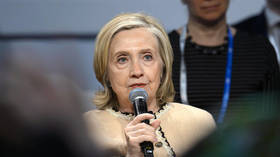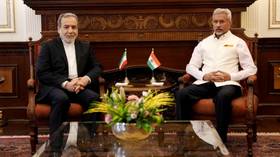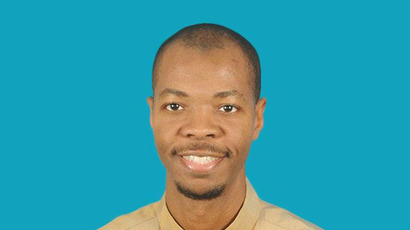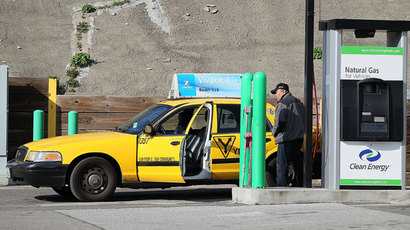American journalist and family detained and harassed at US border
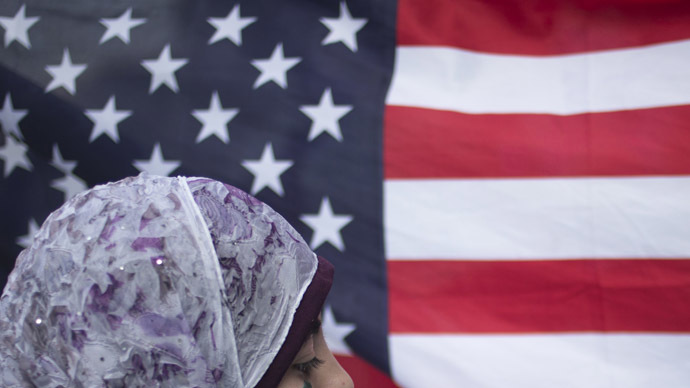
Ignore the sign at the United States’ border crossing near Buffalo, New York claiming those coming in from Canada will be treated with courtesy, dignity and respect. An American journalist says that’s far from what happened recently when returning home.
A producer with National Public Radio’s “On the Media” program says the US Customs and Border Patrol agents who interrogated her and her friends and family while they attempted to return to the States following a recent wedding in Toronto, Ontario were anything but courteous.
Sarah Abdurrahman told NPR that she attempted to cross into the US at Niagara Falls earlier this month on Labor Day when CBP agents stopper her entire party and subjected them to around six hours of questioning.
All six people in the car were American citizens, she said.
“Once we realized we wouldn't be leaving the border facility
anytime soon, the giddiness we still had from the wedding weekend
quickly disappeared,” Abdurrahman told NPR.
For six hours, the CBP agents detained Abdurrahman, her family and her friends, all the while refusing to even explain why they were being held.
A division of the Department of Homeland Security, Abdurrahman said CBP is now the largest federal law enforcement agency in the US. Even if it’s impressive in size, though, the CBP isn’t increasing its efforts to be transparent.
“During my detainment, I tried asking the guy in charge, Supervisor McPherson, why we were held for so long. He said it wasn't my right to know,” she recalled for a recent episode of On the Media. “I asked him the names of the agents who interacted with us while we were detained, and was once again told it wasn't my right to know.”
One of Abdurrahman’s passenger, Sofyan Amry, said the CBP agent seemed “like they were a bunch of frat boys,” and the Americans attempting to legally return home “were a bunch of initiatives just sitting there, awaiting their judgment.”
“There was not a single courtesy given,” he said, even despite a list of the CBP’s “pledges to travelers entering the US” that may have momentarily suggested that civil liberties wouldn’t be stripped away over baseless assumptions.
“Even the bathroom was an ordeal. It was an uphill battle. Absolutely no dignity, at all. We were antagonized from the start, from the cold air to the terrible seats, to the heightened tension and the fact that we – they were kind of laughing on the other end of the room, kind of looking over at us like we were huddled sheep for the slaughter,” Amry said.
Other members of the party were grilled about their religious background. All of them were told to surrender their cell phones, unlocked, and not expect them to be necessarily returned.
Munia Jabbar, an attorney at the Council on American-Islamic Relations, told NPR that CAIR has noticed a pattern of CBP agents imposing “really invasive and personal questions about their protected religious activity” when questioning Muslim travelers.
“You’re singling out people based on their religion and then subjecting them to longer detentions and to humiliating questioning about stuff that they're allowed to do legally, in fact, stuff that is part of the bedrock of our Bill of Rights,” Jabbar said.
The Bill of Rights also protects people against unlawful search and seizure, but the Muslim-Americans who attempted to come home on Labor Day weren’t allowed that right either.
“It went from, we won't search your phones to, we’re gonna search your phone, confiscate it and not give it back to you,” Abdurrahman’s friend Khaled Ahmed told NPR “I got into an argument with the officer. I said, ‘Listen, all my work is on my phone. I really need it.’ He got aggressive with me, he said, ‘Listen, you're not leaving with your phone today.’”
“The government says only around 15 of the 1.1 million people who enter the US each day have their electronic devices searched by Border Patrol agents. If that's true, our three cars may have accounted for almost all of CBP's device searches that day,” Abdurrahman said.
Another carload of US citizens entering America from Canada at the Detroit, Michigan crossing following the wedding near Toronto were stopped as well, hundreds of miles away from Abdurrahman. Weeks later, they still haven’t been told why they were held up. The American Civil Liberties Union has since gotten involved, but haven’t been able to come up with many answers either.
“The accounts are so widespread and so consistent, that it's very hard to see this as anything other than a systemic problem and not just a couple of bad apples here or there,” James Lyle of ACLU Arizona told NPR.
Earlier this month, RT reported on how an American citizen with ties to WikiLeaks source Chelsea Manning had his cell phone and personal computer collected, then cloned by DHS agents while entering the US from abroad. The federal government knew that the friend was vacationing out of the country ahead of time and used that knowledge to eliminate his First and Fourth Amendment-protected rights by relying on a law that limits constitutional freedoms at border crossings.
“The government enjoys wider latitude to search people and their belongings at the border than it possesses elsewhere, for the purpose of protecting our borders,” the ACLU said of that case.
“We have no way of knowing how many of those searches may have been carried out not to search for contraband – which is the reason ICE [Immigration and Customs Enforcement, also a division of DHS] has been granted such broad search powers – but to exploit border search powers to evade the Constitution,” the ACLU said.


